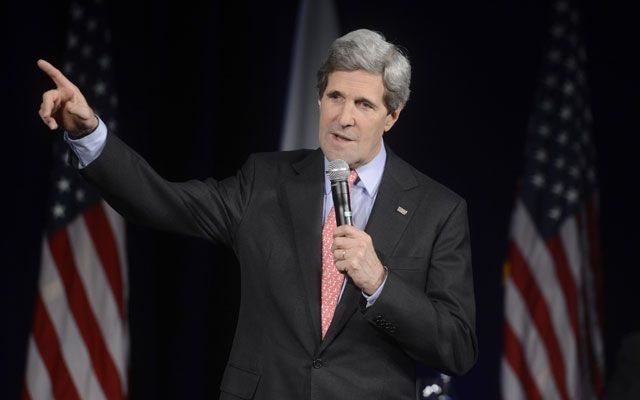Buyer Beware: Secretary Kerry and Venezuela
Ray Walser /
On the margins of the general assembly of the Organization of American States in Guatemala, Secretary of State John Kerry met with Venezuela’s foreign minister, Elias Jaua, representing the democratically challenged and crisis-prone government of Nicolas Maduro, handpicked successor of the late Hugo Chavez and self-proclaimed victor of the April 14 presidential elections.
After the meeting, Kerry told the press: “We agreed today, both of us, Venezuela [read: the Maduro regime] and the United States, that we would like to see our countries find a new way forward, establish a more constructive and positive relationship,”
Regrettably, Secretary Kerry and his Department of State colleagues are succumbing to Diplomat’s Syndrome, a form of optical illusion or mental disorientation that mistakes talk for action and assigns friendly gestures equal weight with actual deeds.
That top diplomats of the U.S. and Venezuela talked is no big deal. President Obama made nice with President Chavez in April 2009 and relations continued to deteriorate. What really matters is whether Venezuela’s populist authoritarian leadership is genuinely ready to modify behaviors that clash with important U.S. interests and values.
Beginning with the death of Chavez on March 5, the Maduro regime has engaged in virtually non-stop anti-American diatribes. It arrested U.S. citizen and filmmaker Tim Tracy on farcical charges of espionage. His recent release is a long overdue and little more than a concession to reality.
Since March, President Maduro and company have repeatedly blocked efforts to obtain a fair review of voting irregularities in the April 14 elections and threatened and assaulted members of the democratic opposition, including a brutal attack on opposition legislators on the floor of the National Assembly. Maduro and company have also spoken of punitive reprisals against U.S. ally Colombia, because Colombian President Juan Manuel Santos met with defeated opposition candidate Henrique Capriles.
Maduro and Jaua clearly hope that Secretary Kerry and the Obama Administration will finally recognize the outcome of the April 14 elections and legitimate Maduro’s presidency while openly throwing the democratic opposition under the bus. Kerry’s statement equating Maduro’s mouthpiece Jaua with Venezuela is disconcerting. The offensive of Maduro and Jaua is aimed at undercutting the diplomatic offensive of the opposition. They also hope to keep the systemic failures of their Cuban-inspired socialism and economic mismanagement out of the discussion and obscure their ties with Iran, Syria, and Hezbollah.
Therefore, the bar for genuine improvements in U.S.–Venezuela relations should remain high. It should include a serious commitment by the Maduro regime to not only respect the rights of the democratic opposition but to enter into an actual dialogue aimed at reducing tensions and preserving fundamental political and economic rights. It will also require a major reversal in persistent anti-Americanism coupled with genuine cooperation to combat illicit drug trafficking and terrorism and adherence to all Iran and Syria sanctions.
Without progress on these keys themes, Kerry and company will falter when it comes to changing the dynamic with post-Chavez Venezuela and legitimate authoritarian rule in Venezuela.

